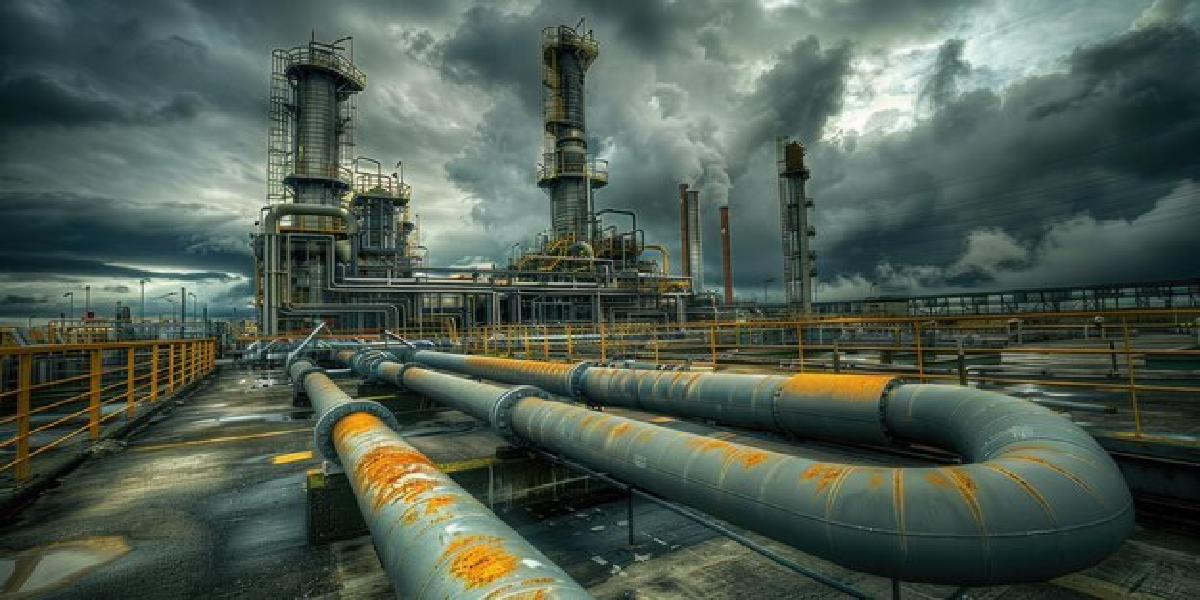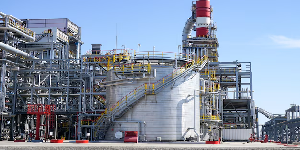
Refinery services play a critical role in the oil and gas industry, transforming crude oil into valuable products used in various sectors, including transportation, medicine, and manufacturing. The refining process is complex and involves several stages, each designed to separate, convert, and treat different components of crude oil to achieve a wide array of products.

THE UNDERSTANDING, THE KEY, THE TECHNOLOGICAL ADVANCEMENT, THE FUTURE AND THE CHALLENGES FACING THE OIL REFINERY SERVICES
UNDERSTANDING THE REFINERY PROCESS
Distillation: The first step involves heating crude oil in a distillation column, which separates it into different fractions based on boiling points. This separation creates various products, such as gasoline, diesel, kerosene, and heavier oils. –
Conversion: After distillation, the heavier fractions can be further processed through conversion methods, such as cracking, hydrocracking, and coking. These processes break down larger hydrocarbon molecules into smaller, more valuable products. –
Treatment and Blending: The final step involves treating and blending the products to improve quality and meet specific regulatory standards. This can involve removing impurities such as sulfur and nitrogen compounds, as well as blending different fractions to produce final products like reformulated gasoline.
Key Refinery Services:
Consulting Services: Expert consultation for optimizing refinery operations, improving efficiency, and implementing new technologies for better yield and sustainability. –
Maintenance and Turnarounds: Regular maintenance of refinery equipment is critical for uninterrupted production. This includes routine inspections, repairs, and comprehensive turnarounds, which are planned shutdowns for maintenance and upgrades. –
Quality Control and Assurance: Continuous monitoring of product quality through laboratory services and testing to ensure compliance with specifications and regulations. –
Environmental Compliance: Refinery services also include managing waste and emissions, ensuring compliance with environmental regulations, and implementing systems to reduce the environmental impact of refining operations. –
Logistics and Transportation: Coordination of the logistics required to move crude oil to the refinery and distribute finished products to market is crucial. This may involve pipeline management, trucking, and shipping.
Technological Advancements:
Process Optimization Software: These technologies analyze data to improve refining processes, minimizing energy use and maximizing output.
Digital Twins: Creating virtual models of refinery operations allows for real-time monitoring and predictive maintenance, helping to prevent downtime. –
Sustainable Practices: Technologies such as carbon capture and storage (CCS) are becoming more prevalent as refineries seek to lower their carbon footprint and transition towards more sustainable operations.
Challenges Facing Refinery Services
Regulatory Compliance: Stricter environmental regulations require refineries to constantly evolve their processes and technologies to ensure compliance.
Market Volatility: Fluctuations in crude oil prices can impact profitability and planning for refiners, necessitating agile operational strategies.
Sustainability Pressures: Growing environmental concerns are prompting a shift towards greener practices, compelling refineries to invest in alternative energy sources and cleaner technologies.
The Future of Refinery Services:
The future of refinery services lies in the integration of cutting-edge technologies focused on sustainability. The shift towards renewable energy sources, such as biofuels and hydrogen, is reshaping the refining landscape. Additionally, efforts to enhance energy efficiency and reduce waste will become increasingly critical for meeting global energy demands while safeguarding the environment. In summary, refinery services are vital to the successful transformation of crude oil into essential products. Through advanced processes and technologies, these services support the industry’s response to operational challenges and evolving market demands.
THE FUNCTIONS OF THE OIL REFINERY SERVICES
Separation and Distillation
Fractionation: The first function is to separate crude oil into different fractions based on their boiling points. Distillation columns are used to produce a range of products, including gasoline, diesel, jet fuel, and heavier oils.
Storage: After separation, each fraction is stored in dedicated tanks to ensure their quality and prevent contamination.
Conversion Processes
Cracking: This involves breaking down heavier fractions into lighter, more valuable products through thermal or catalytic processes. This increases the yield of high-demand fuels such as gasoline and diesel.
Reforming: During this process, naphtha is converted into high-octane gasoline components, enhancing fuel quality.
Treatment and Purification
Desulfurization: Removing sulfur compounds from fuels is crucial for meeting environmental standards. Refinery services treat fuels to reduce sulfur content, complying with regulations.
Hydrotreating: This is another purification method that involves treating fuels with hydrogen to remove impurities and stabilize end products.
Quality Control
Testing and Monitoring: Continuous testing of various products ensures they meet regulatory specifications and quality standards. Refineries monitor parameters such as viscosity, density, and sulfur content.
Compliance Assurance: Refinery services ensure that products adhere to local and international regulations, which helps avoid penalties and ensures safe product distribution.
Logistics and Distribution
Transportation: Refinery services coordinate the transportation of products to various destinations, utilizing pipelines, tankers, and trucks.
Supply Chain Management: Managing the supply chain efficiently ensures that products reach consumers and businesses in a timely manner.
Environmental Management
Waste Management: Refineries implement strategies for managing by-products and waste generated during the refining process, minimizing environmental impact.
Emission Controls: Facilities are equipped with systems to manage and reduce harmful emissions, aligning with environmental regulations.
Research and Development
Innovation: Continuous improvement and advancements in refining technologies are essential for increasing efficiency, reducing costs, and improving product quality.
Alternative Fuels Development: Research into alternative energy sources and fuels helps ensure the refinery’s adaptability in an evolving energy landscape.










